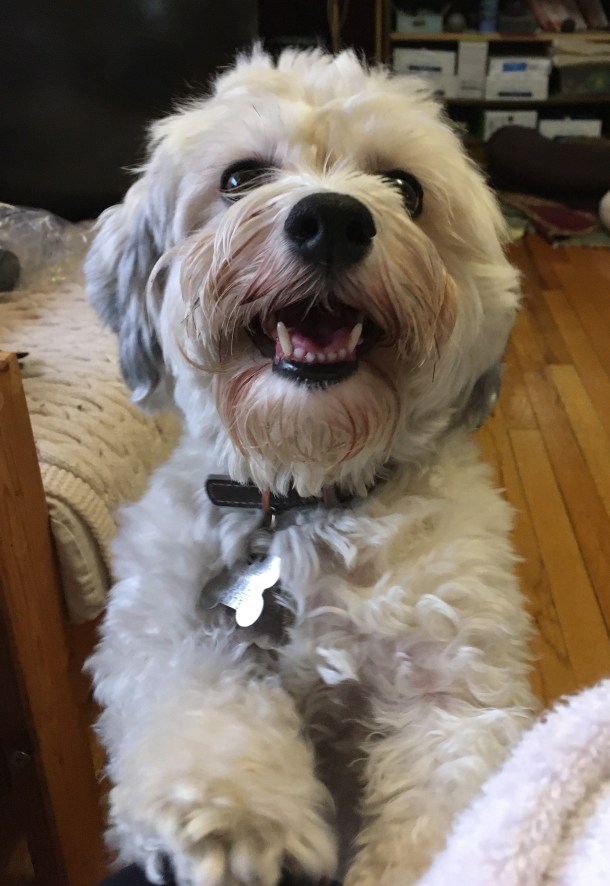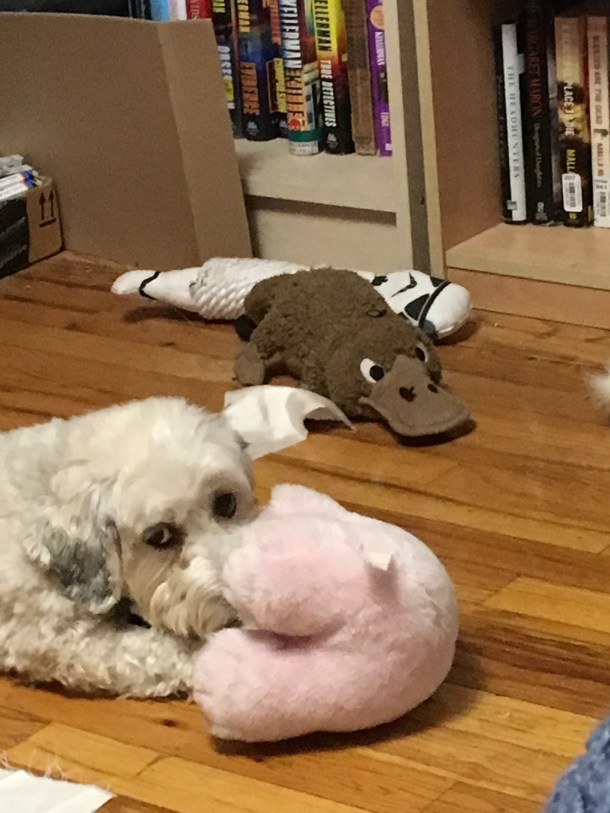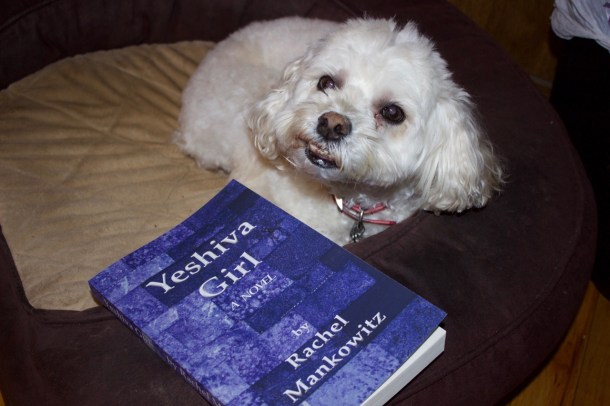During my last summer at sleep away camp, at age thirteen, we had a strange outbreak of mosquitoes. We weren’t allowed to go in the lake for two weeks, and the mosquitoes were in pretty much every breath of air we breathed. I don’t know if it was an early case of West Nile Virus or something else they didn’t bother to explain, but I had to sleep in jeans and a sweatshirt, in ninety degree weather, to try to keep the mosquitoes at bay.

“That sounds bad. I’m worried about this story.”
It was already a very, very bad summer for me. I’d begged to stay home, or better yet, go to California. I had this idea about California that wasn’t based on anything I can remember, except that it wasn’t home. I think my best friend at the time had been talking a lot about going to California for some reason, and she either went to California, or to Israel that summer, to visit family.

“Oy. It’s getting worse.”
I was deeply depressed, irritable, anxious, and uncomfortable 24 hours a day. I’d lost weight (this was pre-anorexia, so I was normal thin, not skinny yet), and had some pretty outfits, and I’d assumed this would make me happy, but it actually made things worse.
Sex was everywhere in camp. There were a lot of rape accusations (all true as far as I could tell, but not taken seriously by the counselors, who were eighteen and nineteen years old, or the administration, who had no excuse). There was a lot of dating and flirting and coupling. I would not have been able to tell you why it was all so awful to me at the time. I couldn’t explain why I felt so thoroughly under attack. I’d had some memories of the sexual abuse by then, in vague images and awful feelings, but I didn’t know what it was, or what to do with it.
My parents came up on visiting day and I was sure they were going to take me home, but instead, my father announced that they were going to Israel in a few days and wouldn’t be back until it was time for me to come home from camp. And I couldn’t go with them. I screamed and cried and he took a picture of me, inconsolable (he framed it and put it up in the downstairs hallway in our house, where it stayed for years).

“Told ya.”
After the mosquito drama, or before it maybe (time was confusing that summer), the counselors took my age group on an overnight campout on a hill. It was coed, with the counselors down at the bottom of the hill, out of ear shot. None of this had been made clear ahead of time. There was at least one rape that night, but I only knew about it because it happened to a friend of mine. I have no idea what else happened, but we were a group of thirteen year old boys and girls without supervision, so I can guess. Someone stepped on my hand in the middle of the night, and no one seemed to notice when I screamed.
No one listened when I ranted about the campout for the next few days, because everyone else seemed to think that a coed sleepover for thirteen-year-olds was totally fine. I was the prude and the hysteric. And the fact is, I couldn’t explain why I was so angry about it when no one else had a word to say, except for the girls who whispered in my ear about rape, on the hill, and on other days and at other times, but refused to go to the administration, or to let me go for them.
None of the rapes, or attempted rapes, happened to me. I barely even touched a boy all summer. But the lack of concern from the adults enraged me. The counselors suggested that my problem was that I was too mature for my age group, and that was why I was so uncomfortable. My opinion was that I needed to walk home from camp, even if it took the rest of the summer. But I was too afraid, and had no money, and that made me feel powerless.
When a twelve-year-old girl was sent home because she had accused two boys of forcing her to give them blow jobs – and no one believed her, because, How can you force someone to give a blow job, really it’s the boys who were raped – I realized I was never going back to that camp.
And it was a terrible loss. The thing is, I’d never really been safe anywhere else. I was sexually abused at home and at my childhood best friend’s house. I was bullied at school. Camp was the one place that felt normal, where I could work through the kinds of painful experiences that everyone else had to go through too. It wasn’t a great joy, but it was a place where I had learned how to make friends, and set boundaries, and argue, and swim. But once sex became an issue, for me and for my peers, camp was no longer safe for me, with my abuse history. Maybe if they’d had better policies in place for how to handle problematic behaviors, or if the counselors were better trained, or if the adults had taken on more of an oversight role, things would have been different. But maybe not.

“I’m sorry, Mommy.”
Usually Mom drove to camp to pick me up at the end of the summer, but this time she arranged for me to go home with another Mom from our area and two of her daughters, because of her late return from Israel with my father. I felt really sick to my stomach on the drive, but I didn’t know the Mom or the girls well enough to say anything. When I finally got home I ran upstairs and barely made it to the bathroom in time, throwing up in the sink. I kept throwing up for the next two days, and by the time school started a week and a half later, I wasn’t eating much at all. My body felt like it had been filled with poison, and I didn’t want to risk adding more. Within weeks I was basically anorexic, and that seemed to help keep the poison at bay. By then I didn’t just want to be skinny anymore, I wanted to be invisible.

If you haven’t had a chance yet, please check out my Amazon page and consider ordering the Kindle or Paperback version (or both!) of Yeshiva Girl. And if you feel called to write a review of the book on Amazon, or anywhere else, I’d be honored.
Yeshiva Girl is about a Jewish girl on Long Island named Izzy. Her father has been accused of inappropriate sexual behavior with one of his students, which he denies, but Izzy implicitly believes is true. Izzy’s father decides to send her to a co-ed Orthodox yeshiva for tenth grade, out of the blue, as if she’s the one who needs to be fixed. Izzy, in pain and looking for people she can trust, finds that religious people are much more complicated than she had expected. Some, like her father, may use religion as a place to hide, but others search for and find comfort, and community, and even enlightenment. The question is, what will Izzy find?


















